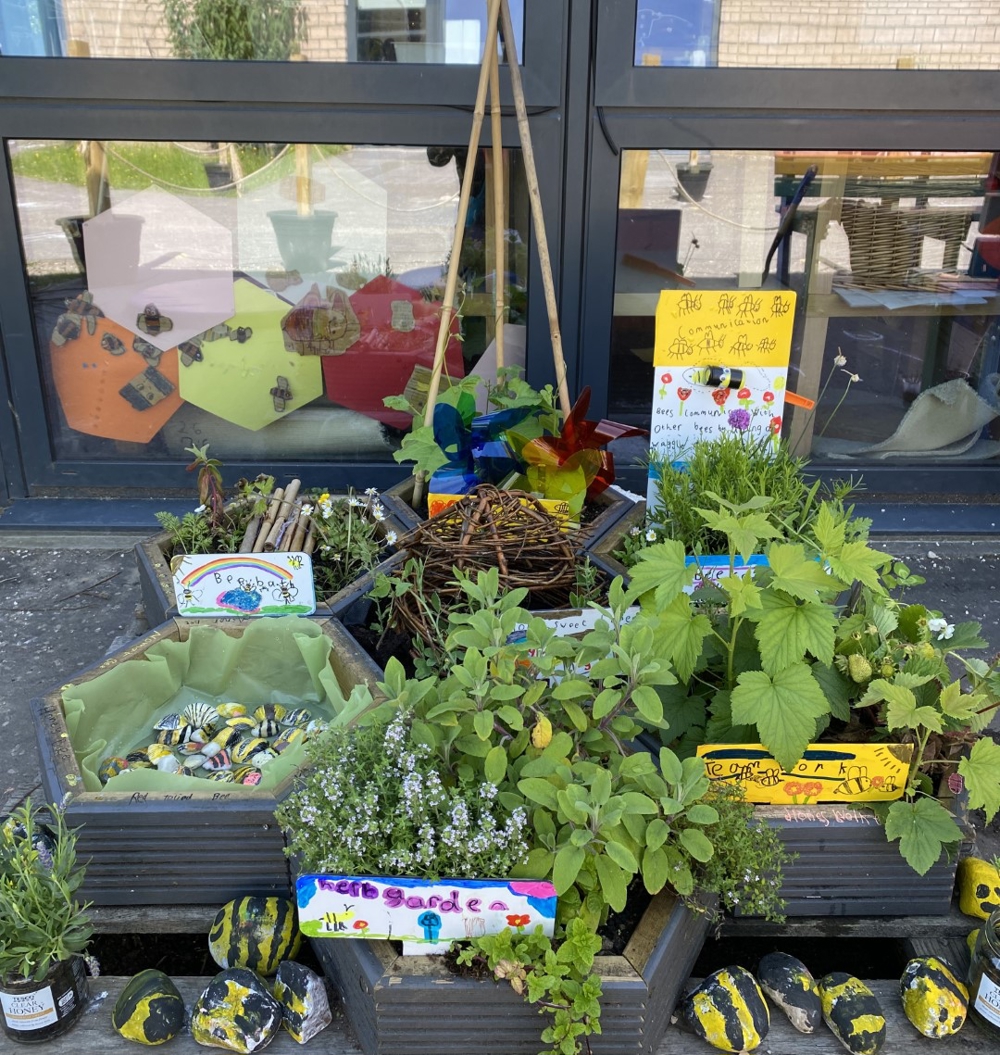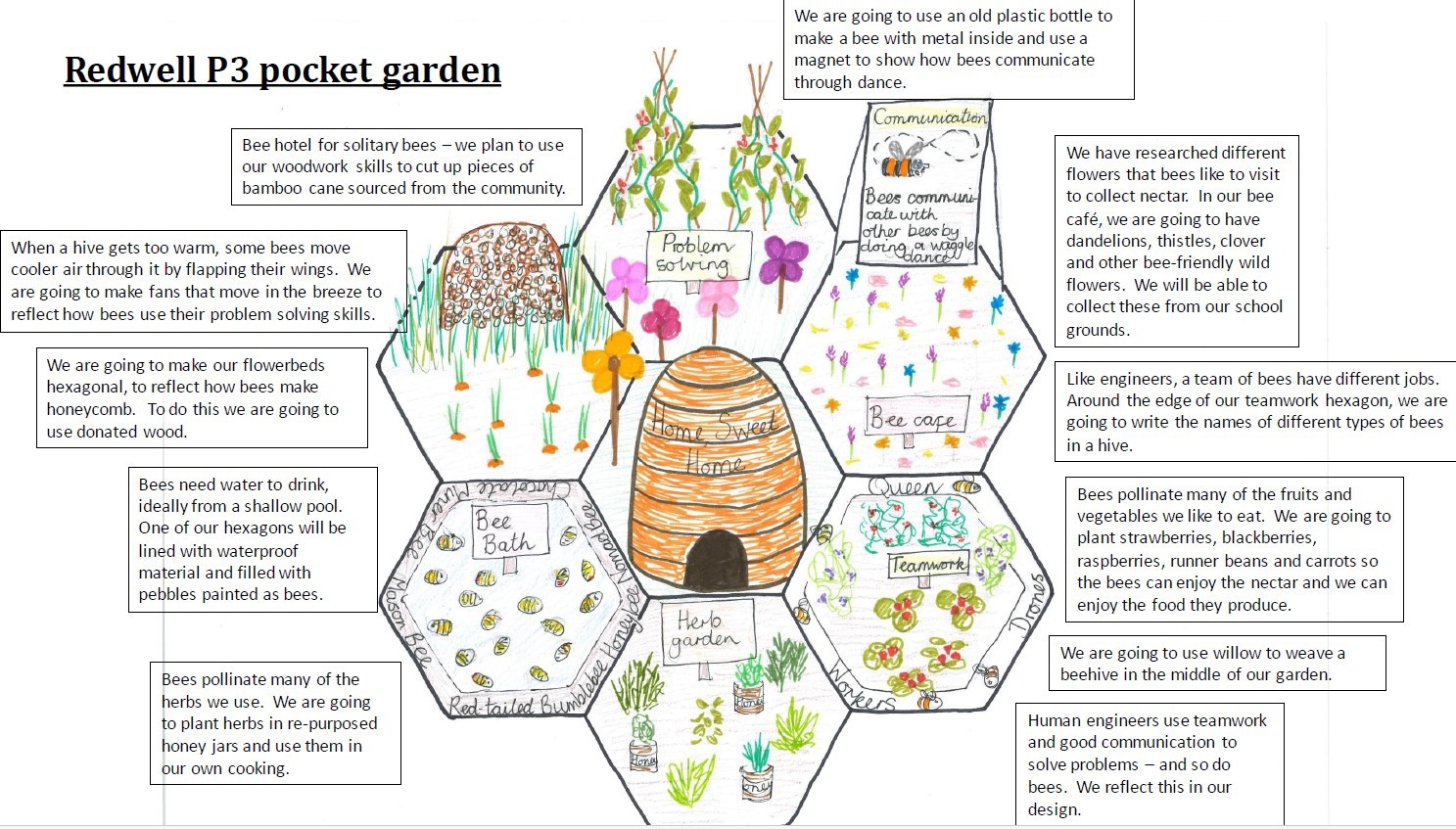Redwell Primary
Redwell Primary

P3 at Redwell have been very busy bees, using the engineering design cycle to research, imagine, plan, create and adapt our Pocket Garden. P3 learned that engineers work in teams and communicate with each other to solve problems and so our pocket garden reflects the ways in which bees do the same.
In a bee colony, different bees have different jobs: the queen bee lays the eggs, drones fertilise the eggs and worker bees clean the hive and collect pollen and nectar. When a worker bee finds a good source of food, she will do a waggle dance to communicate to other bees where it is. Bees solve problems every day too – did you know that some bees will fan the hive with their wings if it gets too warm?
A member of school staff gave us her old garden decking for the hexagons. The hexagons reflect the shape of honeycomb and we have planted lavender in repurposed honey jars, given to us by a parent. We are especially proud of our bee skep, made from willow from a local school and love that we have sweet peas growing over our “Home, Sweet Home”
The children have learned how to safely saw, glue, weave, dig, paint and plant to create the finished garden. They used their knowledge of magnets to create our dancing bee!
Our local Garden Centre generously donated sage, mint, thyme and lavender and we also have strawberries, beans, blackberries, and carrots, all of which rely on bees for pollination. The grandpa of one of our pupils very kindly made the signs especially for our garden.
Bees also love to eat nectar from wild flowers, and we have speedwell, creeping cinquefoil, buttercups, daisies, clover and orange hawkweed in our Bee Cafe. All our plants were found in the school grounds or donated to us by members of our school community. If our bees get thirsty, they can stop off at the bee bath for a quick drink and we also have a bee hotel for solitary bees to stay in.
The engineering design cycle is never finished, and neither is our garden! It sits just outside our STEM room and other children in the school have already used it to support their learning on engineering, to find minibeasts to study, to smell and taste the herbs and to talk about what a plant needs to grow.
The garden will continue to be integrated into learning experiences in our school as it grows and changes over the seasons. We are looking forward to trying some tasty strawberries, blackberries, beans and carrots later this year!


